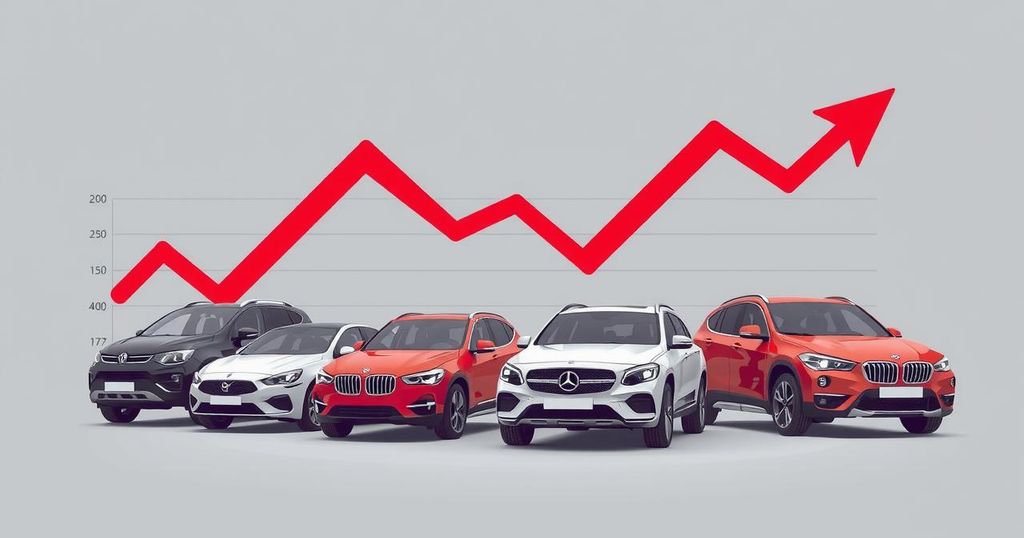South Africa’s Vehicle Exports to the U.S. Plummet Over 80% Due to Tariffs

- South Africa’s vehicle exports to the U.S. have dropped by over 80%.
- The new U.S. tariffs threaten jobs in South Africa’s automotive industry.
- naamsa reports a 73% decrease in auto exports in Q1 2025.
- April and May saw declines of 80% and 85% in vehicle exports.
- The automotive sector represents 64% of South Africa’s AGOA trade with the U.S.
Significant Impact of Tariffs on Exports
South Africa is facing a substantial decline in its vehicle exports to the United States, with numbers showing a drop of over 80% in recent months. This significant downturn, which began in April and intensified in May of 2025, is largely attributed to the new import tariffs enacted by former U.S. President Donald Trump. The aftermath of these tariffs is severe, as the automotive sector is a crucial part of South Africa’s economy and employment landscape, and these changes threaten jobs and the overall industrial strength that relies heavily on vehicle exports.
Dramatic Drops in Auto Export Figures
According to the National Association of Automobile Manufacturers of South Africa (naamsa), the statistics highlight a staggering 73% fall in auto exports to the U.S. during the first quarter of 2025, when contrasted with the same timeframe the previous year. The situation deteriorated even further, with plunges of 80% and 85% noted in April and May respectively. Amid these troubling statistics, naamsa’s CEO Mikel Mabasa has expressed concerns about impending disruption throughout the automotive value chain, signifying substantial economic risks for the nation.
Fears for Future Investments in the Sector
The automotive sector is pivotal for South Africa, comprising 64% of its total trade with the U.S. under the African Growth and Opportunity Act (AGOA). This industry contributed a remarkable 28.6 billion rand (approximately $1.6 billion) in export revenue in 2024. With rising tariffs expected—30% on all vehicle imports beginning August 1—industries such as the automotive manufacturing in East London are now at critical risk. Major automakers, like Mercedes-Benz, are left reconsidering their operational strategies, potentially leading to scaled-back production and an immediate threat to future investments in the region.
The recent imposition of steep tariffs on South Africa’s vehicle exports to the U.S. has led to a dramatic decline in trade, with profound implications for local jobs and industry. As key players like naamsa point to the risks of widespread disruption, the sector’s historical reliance on AGOA now stands precariously at risk. Automakers must now navigate these turbulent waters as they recalibrate their approaches to a rapidly changing export environment.




